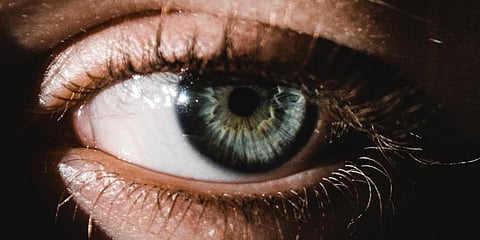

BENGALURU: The economic burden from vision impairment in India for 2020 amounts to Rs 88,900 crore, and 35% of causes of blindness are preventable and early detection can greatly reduce the economic impact, according to the Status of Child Eye Health in India report published by NGO Orbis which works to prevent and treat vision impairment.
The report, released on World Sight Day, also found that between 2019-20, the loss to gross national income due to blindness in adults would be Rs 9,06,200 crore and Rs 3,31,100 crore for children, for 10 and 40 lost working years, respectively. This includes the loss of economically productive years for both the visually impaired and their care-givers.Many of the conditions that affect children are detectable and treatable, said Dr Rishi Raj Borah, country director at Orbis India. “The report brings to light 8-10 conditions in children, which, if diagnosed early, can prevent childhood blindness. These include childhood cataract and glaucoma,” he said.
Other factors that affect treatment include availability of doctors. “Urban areas have one ophthalmologist for 10,000 people but in rural areas it is one for every 2,50,000. Some children have eye problems at birth, while others develop them by the age of 10. Half of them are detectable and treatable,” Dr Borah said.
The shortage of paediatric ophthamologists and paediatric optometrists in India apart, the lack of attention to ophthalmological conditions in primary healthcare also has serious implications for early diagnosis. “General physicians and nurses at PHCs may not have the knowledge or time to examine a child’s eyes. There is a lack of specialists and sufficient staff at PHCs, and in villages. Anganwadi and ASHA workers also aren’t trained to detect eye problems,” said Dr Parikshit Gogate, paediatric ophthalmologist.
The lack of awareness that blindness can be detected early and even treated combined with stigma associated with it also acts as a preventive factor in seeking help. “There is a mindset among parents that younger children do not need spectacles and that only older people suffer from blindness,” Dr. Gogate added. Another reason is the lack of public health infrastructure such as specialised equipment, screening mechanism and charts to detect and treat cases. There is also a lack of coordination between gynaecologists, paediatricians and ophthalmologists, the report said.